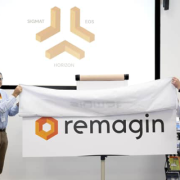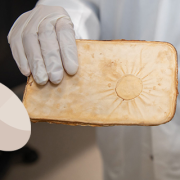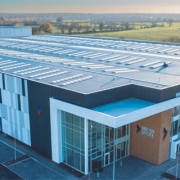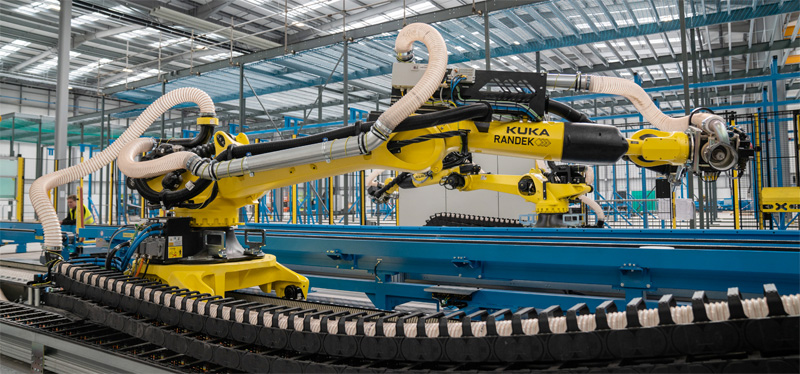Offsite Solutions, the UK’s leading bathroom pod manufacturer, has been awarded two contracts totalling £5m for nearly 1,500 bathroom pods for Downing’s first co-living scheme.
Offsite Solutions has worked on more than 20 Downing projects since 2013, involving the manufacture of nearly 10,000 pods to date in contracts worth over £23m.
Designed by Simpson Haugh, Square Gardens is a £400m co-living scheme in Manchester developed and built by Downing, which will provide new homes for rent – a mix of private studios to five-bedroom apartments.
This project is also the very first application of Offsite Solutions’ new large format tile-effect finish for its GRP bathroom pods. An expanded range of finishes have recently been developed to widen the scope of factory-finished GRP shower rooms and bathrooms specifically for the build-to-rent sector.
Offsite Solutions is manufacturing 1,487 GRP shower rooms and ensuite bathrooms for towers A, B and block D up to the 17th storey. All the pods will be supplied floorless – a highly efficient solution to minimise floor build-up on high-rise apartment projects.
Commenting on Downing’s use of pods for this scheme, Andy Thomas, Operations Director at Downing, said,
“Manufacturing bathrooms offsite gives us a huge benefit in terms of programme, reduction of waste on site and certainty in quality. Our demand for pods is pretty high once the internal fitout process starts on site, so keeping up with our programme is absolutely critical for Downing.”
“Pod technology continues to advance. At Square Gardens we are utilising new higher specification GRP finishes and floorless pods. We are happy with the level of quality and finish that Offsite Solutions achieves with its bathroom pods for Downing and have a good relationship with their organisation at every level.”
James Stephens, Managing Director of Offsite Solutions said, “Downing is one of our longest standing clients. We have provided GRP bathroom pods which have been rolled out on multiple student living schemes developed by Downing across the UK for more than 10 years. We are delighted to now be working on their major co-living development in the heart of Manchester.”
“Over the life of GRP pods, we estimate that the operating cost saving is at least 90 per cent more than in-situ bathroom construction. GRP pod technology continues to advance and we have now developed a series of new aesthetic options and features that developers can specify to further enhance tenant appeal in the shared living space.”
“We can also engineer standardised designs that developers can specify for multiple schemes – as we have done for many years with Downing – further increasing the efficiency of construction and optimising all the benefits of offsite manufacturing.”
All the pods will feature Offsite Solutions’ newly developed large format tile-effect finish in matt white – removing the need for porcelain tiles and grout lines to the wet areas. This option significantly reduces maintenance costs for retained assets.
The larger shower rooms for Square Gardens will have a 1.7m long shower with a sliding door and wall-mounted thermostatic shower. The pods will be fitted out in the factory with a three-door mirrored wall cabinet, bar tower rail, LED lighting, wall hung toilet, and a rectangular wall-mounted hand basin with a pearl white solid surface vanity top above. The ensuite shower pods will have a 780mm shower with a pivot door and a single mirrored wall cabinet.
Due for completion in 2024, Square Gardens aims to simplify and improve residents’ experience of living in the city centre by providing a quality place to live that is not only affordable, secure and convenient but creates a vibrant new connected community.
Offsite Solutions offers the largest range of bathroom pods of any UK manufacturer and to suit different building types, tenures and market sectors. Options include steel-framed bathroom pods with porcelain-tiled finishes for high-end apartments, PRS, student residences and hotels, and robust and low maintenance GRP composite shower and bath pods for student living, build-to-rent, care homes, social housing and healthcare.







